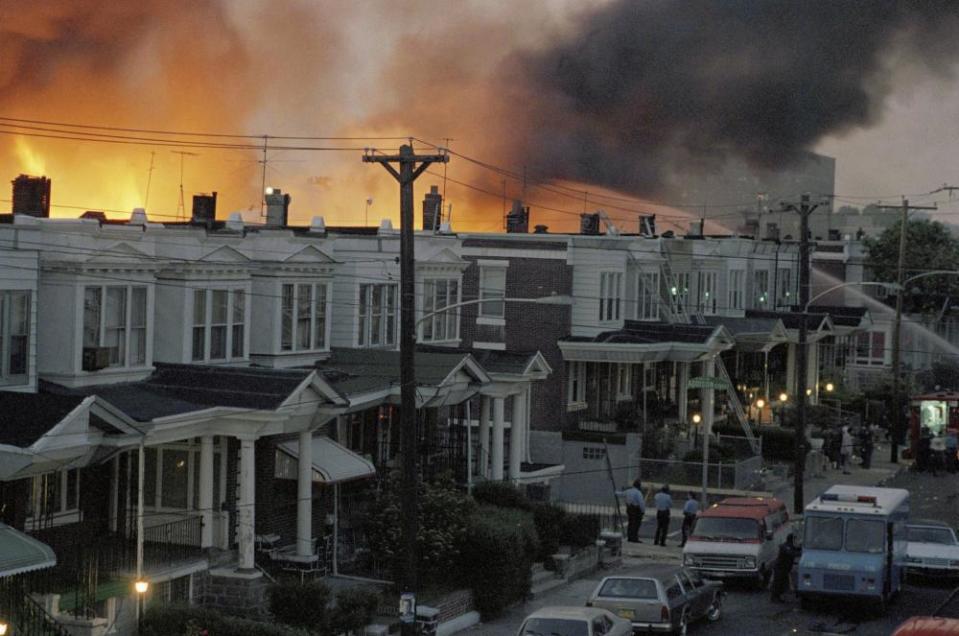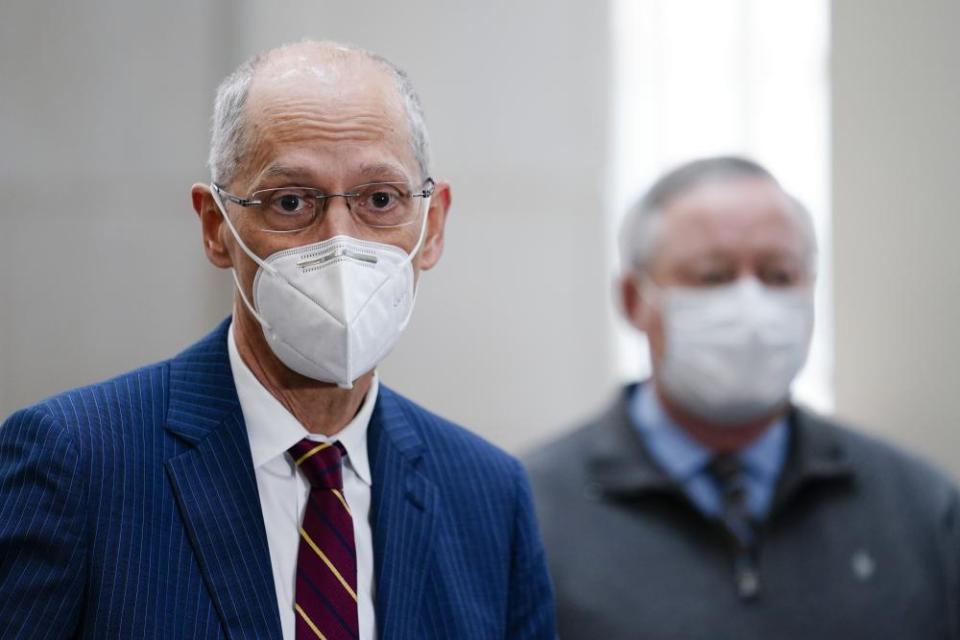Philadelphia incinerated remains of police bombing victims without telling families
The public outcry over the handling of human remains retrieved from the ashes of the deadly 1985 bombing of a Black liberation organization in Philadelphia dramatically escalated on Thursday, with the revelation that the bones of an undisclosed number of Move victims were incinerated and dumped by the city without the knowledge or permission of living relatives.
In a bombshell disclosure, the mayor of Philadelphia, Jim Kenney, announced that he had fired the city’s health commissioner, Thomas Farley. The mayor said that Farley had told him earlier this week that several years ago he had become aware that remains of victims of the Move bombing – in which 11 people died – were still in the possession of the city’s medical examiner’s office.
It is understood that the health commissioner became aware of the bones’ existence in 2017. Instead of attempting to identify them and return them to the families of the deceased, Farley said “he made a decision to cremate and dispose of them”, the mayor said in a statement.
Related: Philadelphia holds day of remembrance for 1985 Move bombing that left 11 dead
Kenney said he had asked the health commissioner to resign. “This action lacked empathy for the victims, their family, and the deep pain that the Move bombing has brought to our city for nearly four decades.”
The city’s medical examiner, Sam Gulino, was also placed on administrative leave pending an investigation.
In a bitter twist of history, the disclosure of the exceptionally cavalier manner in which Philadelphia dealt with the human remains of its own citizens fell on the 36th anniversary of the police bombing. As the mayor put it in his statement: “Today marks 36 years since 11 Black Philadelphians – including children – were killed by their own government.”
The bombing, on 13 May 1985, amounted to one of the worst atrocities in America’s long history of state-inflicted racial violence. A police helicopter was flown over the headquarters of Move, a Black liberation and back-to-nature group which still exists in the West Philadelphia area.

A bomb containing C-4 plastic explosives was dropped from the helicopter on to the roof of the Move house, sparking an inferno that was allowed to burn for an hour before firefighters were called.
In addition to the 11 Move members who died, more than 60 houses were razed in the almost entirely Black neighborhood.
Thursday’s admission that remains of some of the victims were unceremoniously dumped at an unknown location comes on top of the discovery last month that the bones of two of the five children who died in the inferno had been held for almost four decades in the anthropology collection of the University of Pennsylvania. The children are believed to be Tree Africa, who was 14 when she was killed, and Delisha Africa, 12.
The girls’ parents were unaware that their children’s remains had been kept by the university as anthropological artifacts rather than buried. The bones were used as a “case study” in an online forensic anthropology course posted last month by a Penn professor working in conjunction with Princeton University.
Mike Africa Jr, a Move member who lost two close relatives in the 1985 disaster, was so stunned by the latest grim disclosure that he was rendered almost speechless. When the Guardian asked for his response to Thursday’s news, he replied: “I’m not sure I have a response. They took the remains of my family and they incinerated them – the only thing I can say at this point is that people have to be held accountable.”
Africa added that whatever the city authorities had been doing over these past many years “has to come to a screeching halt. They need to stop this crime they have been committing of covering up their behavior and destroying evidence of what they’ve done.”
In his official statement, Kenney said that he had become aware of the “very disturbing incident” earlier this week but had withheld making an announcement until members of Move could be informed. The mayor said that he had met with Move members on Thursday and apologized “for the way this situation was handled, and for how the City has treated them for the last five decades”.

At a press conference on Thursday evening, the mayor said that the meeting with the Move representatives earlier in the day had been “long and very difficult. It was very emotional on many levels.”
It was also disclosed that for 35 years the Move remains, described as “bone fragments”, had probably been stored in a cardboard box in the medical examiner’s office.
The identity and number of victims whose remains were contained in the box remain a mystery and will be a subject for an outside investigation which the mayor has instigated,
led by the global law firm Dechert LLP. Move relatives will be able to nominate individuals to participate in the inquiry.
Later on Thursday the ousted health commissioner put out his own statement in which he insisted that by disposing of the bone fragments he had only been following customary departmental procedure. But he said that he had come to see his action as unjustifiable.
“I believe my decision was wrong and represented a terrible error in judgment. I profoundly regret making this decision without consulting the family members of the victims and I extend my deepest apologies for the pain this will cause them.”
Kenney said when he heard about the disposal of human remains from the 1985 bombing he thought of his own family. “If my own family had been treated like that I would have been angry, confused, sad and traumatized,” he said.

 Yahoo Finance
Yahoo Finance 